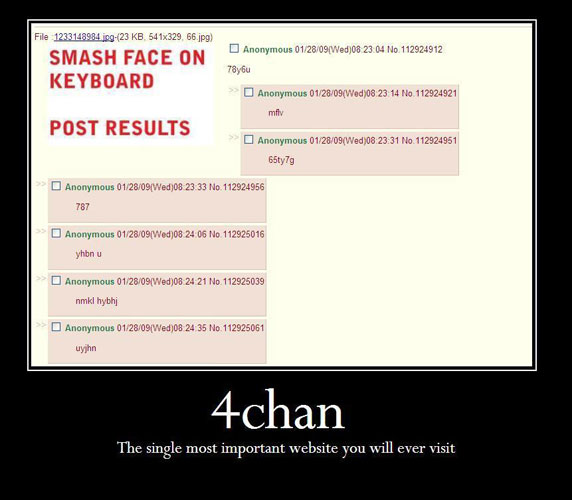n+1 has posted roughly the first third of my article The Stupidity of Computers online. It talks about what computers can do easily, and what is near-impossible for them.
The Stupidity of Computers
Computers are near-omnipotent cauldrons of processing power, but they’re also stupid. They are the undisputed chess champions of the world, but they can’t understand a simple English conversation. IBM’s Watson supercomputer defeated two top Jeopardy! players last year, but for the clue “What grasshoppers eat,” Watson answered: “Kosher.” For all the data he could access within a fraction of a second—one of the greatest corpuses ever assembled—Watson looked awfully dumb….
Some of the towering achievements in computer science have been in the creation of brilliantly clever, efficient, and useful algorithms such as Quicksort, Huffman Compression, the Fast Fourier Transform, and the Monte Carlo method, all reasonably simple (but not obvious) methods of accomplishing precisely specified tasks on potentially huge amounts of precisely specified data. Alongside such computational challenges there has been the dream of artificial intelligence: to get computers to think….
It has a bit of the history of artificial intelligence, which one rather famous AI researcher has called “a history of failure,” including SHRDLU, ELIZA, and MGonz. (For more details, see Mark Humphrys’ paper “How My Program Passed the Turing Test.”)
I also have a long feature on “A-culture” (anonymous internet culture: 4chan, Anonymous, etc.) now up at the online magazine Triple Canopy. It is in two parts, beginning with an essay:
Anonymity as Culture: Treatise
Alienation, irony, autonomy, discourse. On 4chan and Internet masquerade.
Today, the most ubiquitous online communities are social networks where our identities are mostly known and mostly persistent. Each tweet, each status update, is branded with a persistent name or affiliation.
Yet for people who do not want to be known, do not want to be corralled into demographic groups, and do not want the hierarchy of prestige, other spaces persist. These are the sort of spaces that were the progenitors of social networks: newsgroups, chatrooms, online forums, and Internet Relay Chat channels. They offer a lack of accountability for what one says, a way to hide unappealing facts about oneself, and an instant escape hatch if things get unpleasant. They offer anonymity.
The growth of these anonymous spaces marks the first wide-scale collective gathering of those who are alienated, disaffected, voiceless, and just plain unsocialized….
Delve then, if you dare, into the glossary and case studies:
Anonymity as Culture: Case Studies
Homosexuality, suicide, hate, porn. Four episodes and a glossary.
trap
A trap can never be obvious, or else it isn’t a trap.
Transgenderism is one of the recurrent obsessions of A-culture—specifically the idea of the trap, i.e., a male who presents himself as a woman and would be taken for a woman except for his genitals. The phrase—taken from Admiral Ackbar’s exclamation on being ambushed in Return of the Jedi: “It’s a trap!”—is a pejorative indicating that straight men have been tricked into being aroused by one of their own gender. However, it’s not unusual for posters to identify themselves as traps, or for posters to declare an interest in traps and even express confusion over their attraction to them. The trap embodies two conflicting impulses of A-culture: the love of deviancy and surprise, and the pervasiveness of suspicion, deception, and ridicule. This paradox is best exemplified by the posting of the technically self-contradictory statement “I’m a trap.”
I wrote this article in the spirit of Erving Goffman.


5 March 2012 at 18:04
Having read the n+1 piece in full now, carefully edifying, calmly horrifying, I just wondered whether you are able to comment on its relation to your reciprocal career as software engineer. Shouldn’t the deep aesthetic pleasure derived from crafting computer code (which I share)– abstracting wisely, reducing elegantly, quieting ‘noise’, building castles in the digital aether, refining out of existence– be renounced in the face of this ultimate ramifying violence?
6 March 2012 at 21:51
I’d say there are morally defensible uses to which coding can be put. Like any aesthetic pleasure I think there’s a responsibility to use it morally, and as so often, there are gray areas. The larger movements of abstraction, ontology, and classification cannot be turned back; responsibility now lies in making the contingent nature of these classifications as evident as possible…much as was needed before computers even existed.